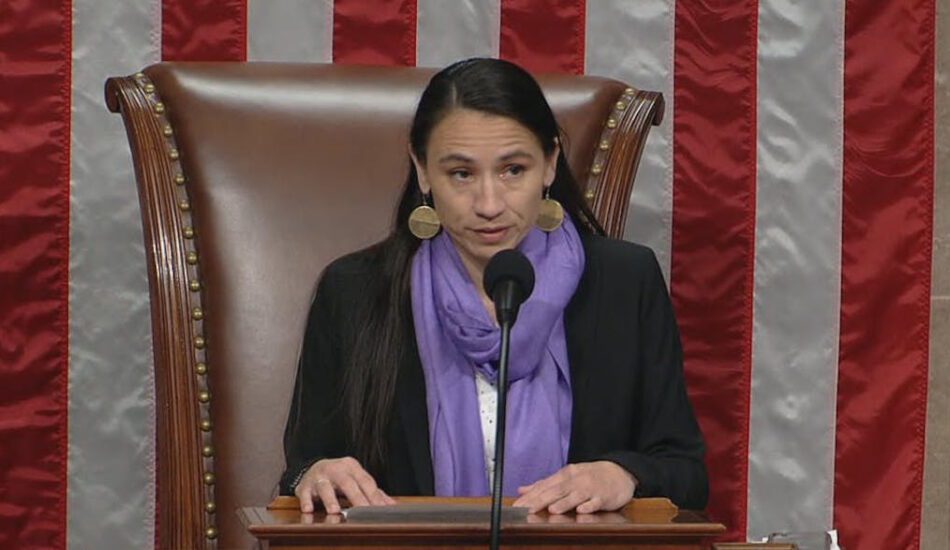By TRIBAL NEWS STAFF
April 4, 2019 – The Violence Against Women Act (VAWA), H.R. 1585, passed through the House earlier this month. With this renewal of VAWA, protections for adult domestic violence victims that came into effect in 2013 are extended to Native children.
Since the 2013 passage of VAWA, the provision called the Special Domestic Violence Criminal Jurisdiction (SDVCJ) reaffirmed the inherent sovereign authority of Indian tribal governments to exercise criminal jurisdiction over non-Indians who violate protection orders or commit domestic or dating violence crimes against Indian victims on tribal lands. SDVCJ has also increased protection for Native women, sparked needed conversations on partner violence, and has increased collaboration among individual tribes, local, state and federal governments.
However, these protections granted in 2013 did not extend to Native children, despite how nearly 60 percent of SDVCJ cases involved children as victims or witnesses. In many instances, tribes were only able to charge a non-Indian batterer for violence against a woman, while nothing could be done about violence against her children.
The April 4, 2019 reauthorization of VAWA granting additional protections to Native children is a huge win for Indian Country. Juana Majel-Dixon, Co-Chair for the Task Force on Violence Against Women, and Recording Secretary at National Congress of American Indians (NCAI), commented on the bill passing, saying, “As tribal leaders, we have no greater priority than protecting our women, children, and elders. Too often, we as Native women are invisible, but today, we celebrate and thank the representatives here for seeing us, for standing with us, and for fighting with us.”
VAWA 2019 awaits a vote in the Senate before it passes into law. Other features of VAWA 2019 are the addition of gun control legislation and additional protection for transgender individuals. In this bill, those who have a restraining order against them or are convicted of abusing, assaulting or stalking a domestic partner are prevented from buying guns. Additionally, transgender people who are imprisoned are granted safety and protection by the Bureau of Prisons when receiving housing assignments.
The National Rifle Association (N.R.A.) and other gun lobbying organizations are claiming these 2019 amendments infringe on Second Amendment rights. While Republican Senator Elise Stefanik, NY, claims that including protections for transgender prisoners is a “political game at the expense of vulnerable women.” At this time, it is unclear how the Republican-controlled Senate will lean when VAWA 2019 reaches the floor.
Majel-Dixon and many others hope the Senate will recognize this bill for the good it can do, in Indian Country and otherwise. “Victims in Indian Country cannot wait,” Majel-Dixon said. “We will not accept a bill that leaves Native victims behind. They are counting on us.”





